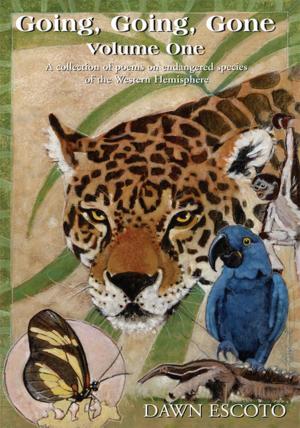| Author: | Don A. Hoyt | ISBN: | 9781311594969 |
| Publisher: | Don A. Hoyt | Publication: | January 2, 2014 |
| Imprint: | Smashwords Edition | Language: | English |
| Author: | Don A. Hoyt |
| ISBN: | 9781311594969 |
| Publisher: | Don A. Hoyt |
| Publication: | January 2, 2014 |
| Imprint: | Smashwords Edition |
| Language: | English |
Catharine Wagner contends “indeterminacy is [now] our era’s dominant style and can no longer be seen as radical.” By indeterminacy, she means poetry based on disembodied language; or, perhaps, an etiology based on ideology. In the recent past, to be successful, the poet has needed only to be confused and a member, at least figuratively, of the “lost generation.”
Not so, Hoyt. Harking back to Stevens, Lowell, Winters, and Duncan, his poems attempt to make some sense out of the experiences of his life. And he uses language, guided by thought, to do that. Some excerpts follow:
•Here the great minds clump like Southern biscuits. / The friction of their dialog heats the air like an oven, / and certainty is due to rise any minute, (The Committee Meets in the Capitol)
•You can't buy snow tires here, so when the ice comes / it shuts us all down like weak batteries; (Southern Blizzards)
•brief moments of blurred dis-existence / like night bats around a street lamp plunging in and out of creation, (The Fair)
•[we]… launched into the flat, suggestive allegory of the road. / There was no Jack Kerouac in it-- / only an immense desire to chew a little on the world's flowers. (The Summer of Our Discontent)
•I don't know when the sun shines / if it's day-time or just my own desire for day. / In the jostling milieu of colors, / every answer is here but that. (The Better Road Beside)
Unlike poets of the indeterminate variety, Hoyt risks his reputation on literary efficacy.
Catharine Wagner contends “indeterminacy is [now] our era’s dominant style and can no longer be seen as radical.” By indeterminacy, she means poetry based on disembodied language; or, perhaps, an etiology based on ideology. In the recent past, to be successful, the poet has needed only to be confused and a member, at least figuratively, of the “lost generation.”
Not so, Hoyt. Harking back to Stevens, Lowell, Winters, and Duncan, his poems attempt to make some sense out of the experiences of his life. And he uses language, guided by thought, to do that. Some excerpts follow:
•Here the great minds clump like Southern biscuits. / The friction of their dialog heats the air like an oven, / and certainty is due to rise any minute, (The Committee Meets in the Capitol)
•You can't buy snow tires here, so when the ice comes / it shuts us all down like weak batteries; (Southern Blizzards)
•brief moments of blurred dis-existence / like night bats around a street lamp plunging in and out of creation, (The Fair)
•[we]… launched into the flat, suggestive allegory of the road. / There was no Jack Kerouac in it-- / only an immense desire to chew a little on the world's flowers. (The Summer of Our Discontent)
•I don't know when the sun shines / if it's day-time or just my own desire for day. / In the jostling milieu of colors, / every answer is here but that. (The Better Road Beside)
Unlike poets of the indeterminate variety, Hoyt risks his reputation on literary efficacy.















